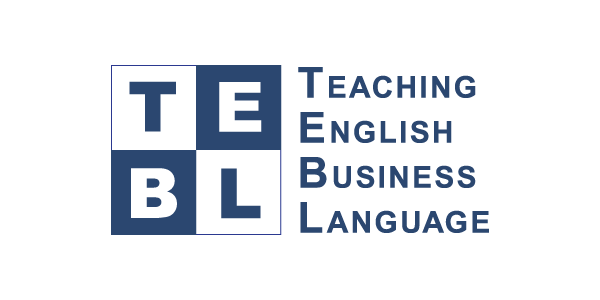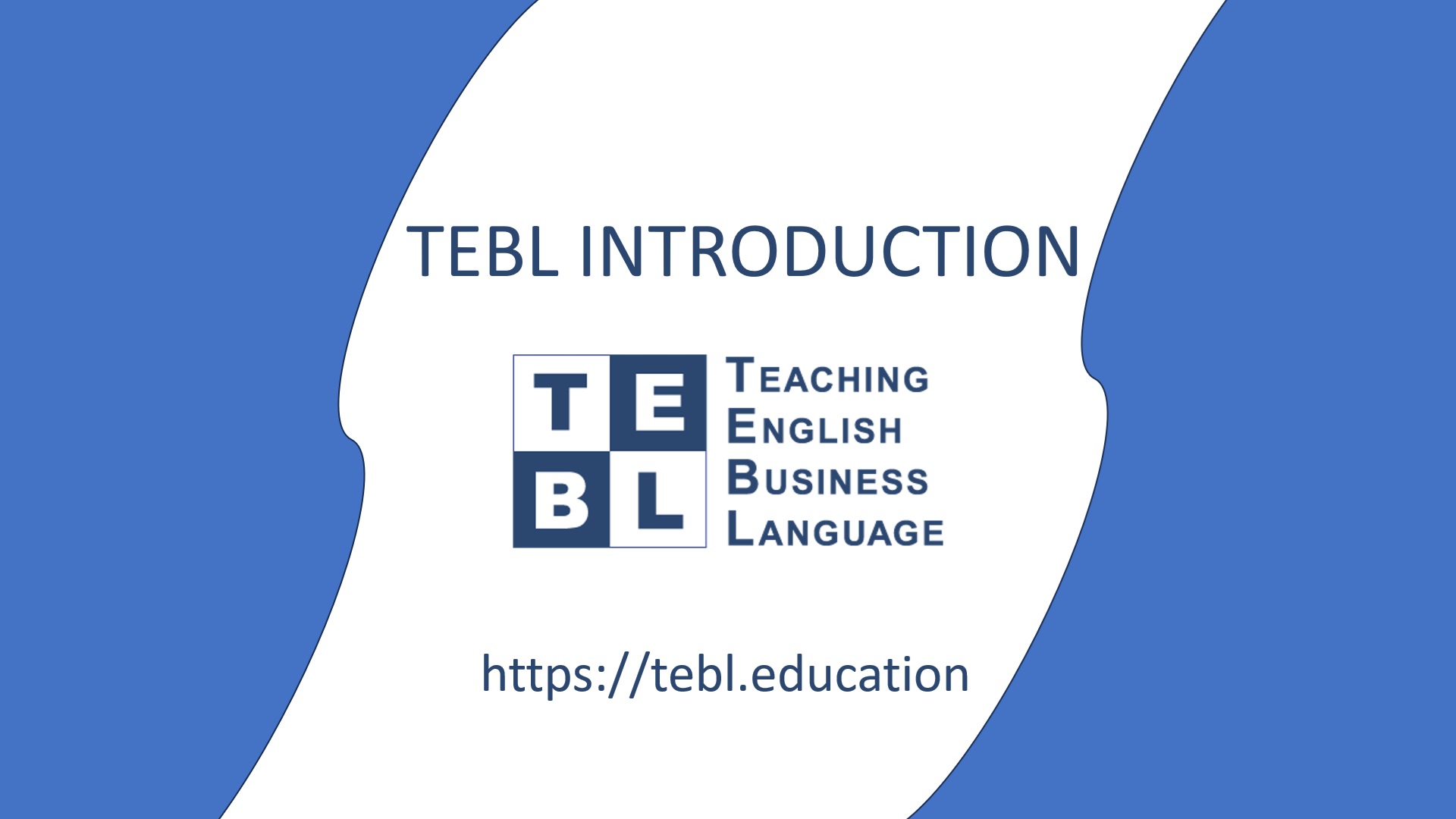TEBL is a Business English Teaching Method to Help Business People Learn English
In the contemporary global business environment, English has emerged as the lingua franca of commerce, making proficiency in business-specific English essential for both academic success and professional advancement. Teaching English as a Business Language (TEBL) was developed to address this need by integrating elements from English for Academic Purposes (EAP) and English for Occupational Purposes (EOP). This innovative approach ensures that learners acquire the necessary language skills for both academic and practical applications in business contexts.
TEBL offers a comprehensive curriculum that emphasizes quality, professionalism, and respect, providing an engaging and up-to-date educational experience delivered by qualified and experienced educators. The program focuses on imparting business-specific vocabulary, effective writing, and presentation skills, thereby enhancing communication competencies. Furthermore, TEBL helps to break down language barriers, boost student confidence, and improve academic performance by enhancing comprehension and engagement with course materials.
By preparing students for professional readiness, TEBL offers competitive advantages in securing internships, job placements, and networking opportunities. It promotes holistic learning by incorporating interdisciplinary business concepts and fostering a global perspective. The agile learning approach of TEBL ensures adaptability and continuous improvement in language skills, keeping students current with evolving business practices. Ultimately, TEBL provides a focused learning experience with practical applications, making it an indispensable component of contemporary business education.
TEBL is a Teaching Methodology ideally combined with Professional Business Studies (Minimum BCom Degree) and/or Equivalent 2-3 Years of Work Experience as well as one or more of the English Teaching Credentials such as the following:
1. TESOL (Teaching English to Speakers of Other Languages)
Definition: TESOL is an umbrella term that covers both teaching English as a second language (ESL) and teaching English as a foreign language (EFL). It is often used interchangeably with TESL and TEFL but technically encompasses both.
Description: A TESOL certification is designed for teachers who want to teach English to non-native speakers, either in English-speaking countries (ESL) or abroad (EFL). TESOL programs typically include training in language acquisition, teaching methodologies, lesson planning, and classroom management.
2. TESL (Teaching English as a Second Language)
Definition: TESL focuses on teaching English to non-native speakers living in an English-speaking country.
Description: A TESL certification is ideal for teachers who plan to work with immigrants or international students in countries where English is the dominant language. The program usually covers cultural adaptation, advanced grammar, and techniques for teaching English in multilingual classrooms.
3. TEFL (Teaching English as a Foreign Language)
Definition: TEFL is concerned with teaching English to non-native speakers in countries where English is not the primary language.
Description: A TEFL certification is intended for those who wish to teach English abroad. The training often includes instruction on how to adapt teaching methods to different cultural contexts, curriculum development, and practical teaching experience.
4. TEYA (Teaching English to Young Adults)
Definition: TEYA specializes in teaching English to Young Adults, typically from college age.
Description: A TEYA certification focuses on young adult psychology, age-appropriate teaching techniques, and activities that engage young adults.
5. CELTA (Certificate in English Language Teaching to Adults)
Definition: CELTA is an internationally recognized certification for teaching English to adults.
Description: Administered by Cambridge Assessment English, CELTA is highly regarded and widely recognized. The course involves a rigorous mix of theory and practical teaching experience, focusing on adult learning principles, language skills development, and effective teaching strategies.
6. DELTA (Diploma in English Language Teaching to Adults)
Definition: DELTA is an advanced qualification for experienced English language teachers.
Description: Also administered by Cambridge Assessment English, the DELTA is a higher-level qualification that builds on the skills acquired through CELTA or equivalent experience. It includes modules on theory and practice, professional development, and specializations in areas such as business English or English for academic purposes.
7. TEFLi (TEFL International)
Definition: TEFLi certifications are offered by various organizations and institutions worldwide, providing standardized training for teaching English abroad.
Description: TEFLi programs typically offer a mix of online and in-person training, including classroom management, lesson planning, and teaching practice. The quality and recognition of TEFLi certifications can vary, so it’s important to choose a reputable provider.
8. TEFLA (Teaching English as a Foreign Language to Adults)
Definition: TEFLA is another term used for certifications focused on teaching English to adult learners, often interchangeable with TEFL.
Description: TEFLA programs emphasize adult education principles, curriculum design for adult learners, and techniques for engaging adult students in the learning process.
9. EFL (English as a Foreign Language)
Definition: EFL refers to teaching English to non-native speakers in countries where English is not the primary language.
Description: EFL certifications, like TEFL, prepare teachers to work in diverse cultural settings, focusing on language skills, teaching methodologies, and cultural sensitivity.
10. ESL (English as a Second Language)
Definition: ESL focuses on teaching English to non-native speakers in English-speaking countries.
Description: Similar to TESL, ESL certifications equip teachers with skills to help students integrate into English-speaking environments, emphasizing language acquisition, cultural adaptation, and practical language use.
Keywords
- Teaching English as a Business Language (TEBL)
- English for Specific Purposes (ESP)
- English for Academic Purposes (EAP)
- English for Occupational Purposes (EOP)
- Business English
- Academic Success
- Professional Readiness
- Global Business
Mission
- Teaching English as a Business Language
Vision
- Empowering Business Success through Targeted English Proficiency
Values
- Quality: An engaging, current, and effective curriculum based on proven educational foundations, specific to enabling learning.
- Professionalism: Focusing on English for specific purposes, delivered by qualified (ESL, TESL, TESOL, TEFL, IATEFL members) and experienced business and English teachers.
- Relevance: Respecting the pupil and focusing on applied business English, enabling learners to quickly utilize the knowledge and skills they need in the real business world.
In the contemporary global business environment, English has emerged as the lingua franca of commerce, necessitating proficiency in business-specific English for both academic success and professional advancement. Teaching English as a Business Language (TEBL) represents a specialized approach within the broader framework of English for Specific Purposes (ESP). By integrating elements from both English for Academic Purposes (EAP) and English for Occupational Purposes (EOP), TEBL offers a comprehensive solution tailored to the needs of business students and professionals.
Understanding ESP, EAP, and EOP
English for Specific Purposes (ESP) is a targeted approach to language teaching that addresses the specific linguistic needs of learners within particular domains, including academia and various professional fields. ESP is traditionally divided into two main branches:
English for Academic Purposes (EAP)
Focus: EAP focuses on the language skills necessary for academic success, such as writing research papers, participating in seminars, and understanding academic lectures.
Journals and Research: Significant research in EAP is published in journals like English for Specific Purposes and the Journal of English for Academic Purposes. The emphasis on EAP within ESP is driven by the affiliation of many ESP researchers with academic institutions and the strong need for EAP skills among students.
Target Audience: Students and academics who require advanced English skills to thrive in their educational pursuits.
English for Occupational Purposes (EOP)
Focus: EOP addresses the language skills needed for professional and workplace settings, including specific business roles such as marketing, finance, and human resources.
Journals and Research: While there is no dedicated journal exclusively for EOP, relevant research can be found in publications such as English for Specific Purposes.
Target Audience: Professionals who need tailored English skills for their specific job roles and industries.
TEBL: Integrating EAP and EOP for Business Education
TEBL uniquely combines the strengths of EAP and EOP to cater to the distinct needs of business students and professionals. This integration ensures that learners acquire both the academic and practical language skills necessary for success.
From EAP:
- Academic Skills for Business Studies: TEBL incorporates academic English skills essential for business studies, such as analyzing business texts, writing academic papers, and presenting research findings.
- Research and Theory Application: Learners engage with academic literature, apply business theories, and participate in scholarly discussions, crucial for academic and professional development.
From EOP:
- Practical Business Communication: TEBL emphasizes practical language skills required in the business world, including drafting reports, composing professional emails, negotiating deals, and making presentations.
- Industry-Specific Vocabulary: Focused on terminology and language usage specific to various business roles, enabling effective communication in professional contexts.
Benefits of TEBL for Future Business Students
Business students stand to gain significantly from a TEBL course review prior to commencing their studies. Key benefits include:
Enhanced Communication Skills
Business-Specific Vocabulary: TEBL courses focus on teaching English vocabulary and terminology specific to business contexts. This helps students understand and use the language effectively in their studies and future careers.
Effective Writing: Students learn to write clear and concise business reports, emails, and other documents, which are crucial skills in both academic and professional settings.
Presentation Skills: TEBL courses often include training on how to present ideas confidently and clearly, a vital skill for business students.
Increased Confidence
Reduced Language Barriers: Students who are non-native English speakers can reduce language-related anxiety and participate more actively in class discussions, group projects, and presentations.
Preparedness: With a solid foundation in business English, students can approach their studies with greater confidence, knowing they are equipped to handle the language demands of their coursework.
Potential Academic Performance
Comprehension: May result in better understanding of lectures, readings, and assignments that often use complex business terminology.
Engagement: May provide enhanced ability to engage more deeply with course materials and discussions, leading to a richer learning experience.
Professional Readiness
Internships and Job Placements: Many business programs include internships and job placements as part of the curriculum. Proficiency in business English can make students more competitive candidates for these opportunities.
Networking: Being able to communicate effectively in business settings helps students build professional networks, which are essential for career development.
Holistic Learning
Interdisciplinary Understanding: Business studies often integrate concepts from various disciplines such as economics, marketing, finance, and management. TEBL courses help students understand and articulate these interdisciplinary connections in English.
Global Perspective: Business is increasingly global. Mastery of business English allows students to engage with international case studies, collaborate with peers from different countries, and understand global business trends.
Agile Learning Approach
Adaptability: TEBL emphasizes agile education, which means students learn to adapt quickly to new information and situations, a crucial skill in the fast-paced business world.
Continuous Improvement: The iterative nature of agile learning encourages students to continuously improve their language skills, keeping them up-to-date with evolving business practices.
Time-Saving by Learning Useful Business English
Focused Learning: Instead of spending time on general English, students can concentrate on the specific language skills needed for business, making their learning process more efficient.
Practical Application: TEBL courses enable students to start applying business English immediately through practical exercises and real-world scenarios, ensuring that the skills they learn are directly relevant to their studies and future careers.
Comprehensive Overview of Key Business Topics
Broad Knowledge Base: By choosing from a list of numerous basic business topics, students gain a broad understanding of essential business concepts, which can serve as a foundation for more advanced studies.
Current Relevance: The topics covered are aligned with the most important business issues today, ensuring that students are well-informed about contemporary business practices and trends.
Example Topics in a TEBL Course for Future MBA Students
- Business Goals
- Leadership and Management
- Economics Language
- Accounting Language
- Finance Language
- Supply Chain Language
- Operations Management Language
- Human Resources Management Language
- Sales Management Language
- Marketing Language

